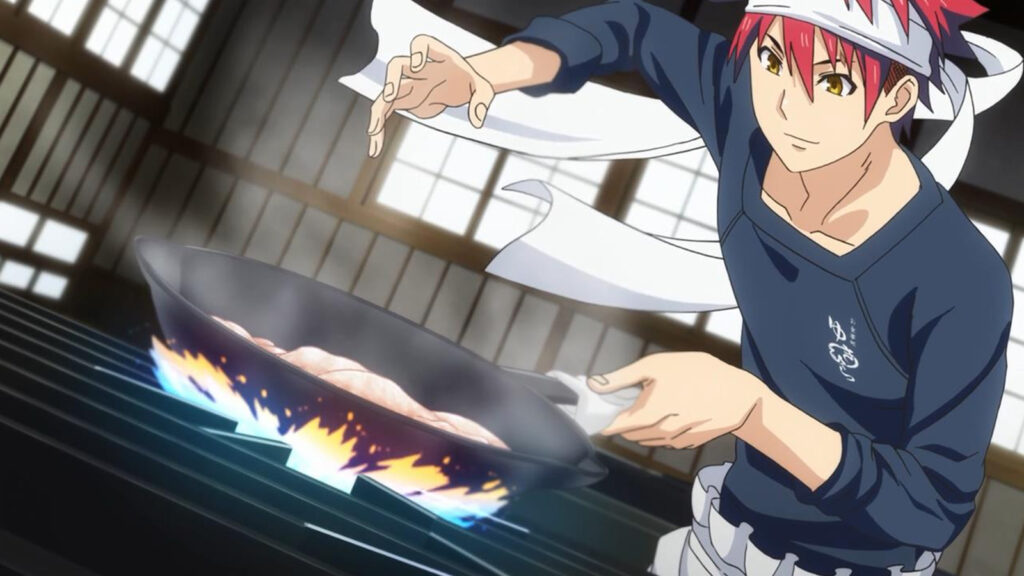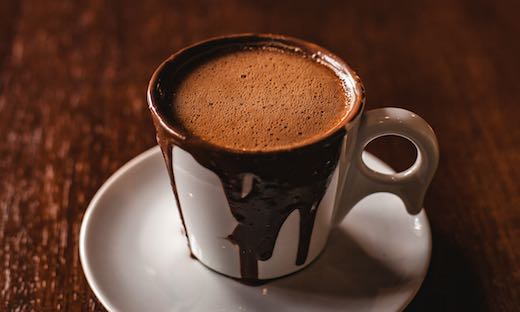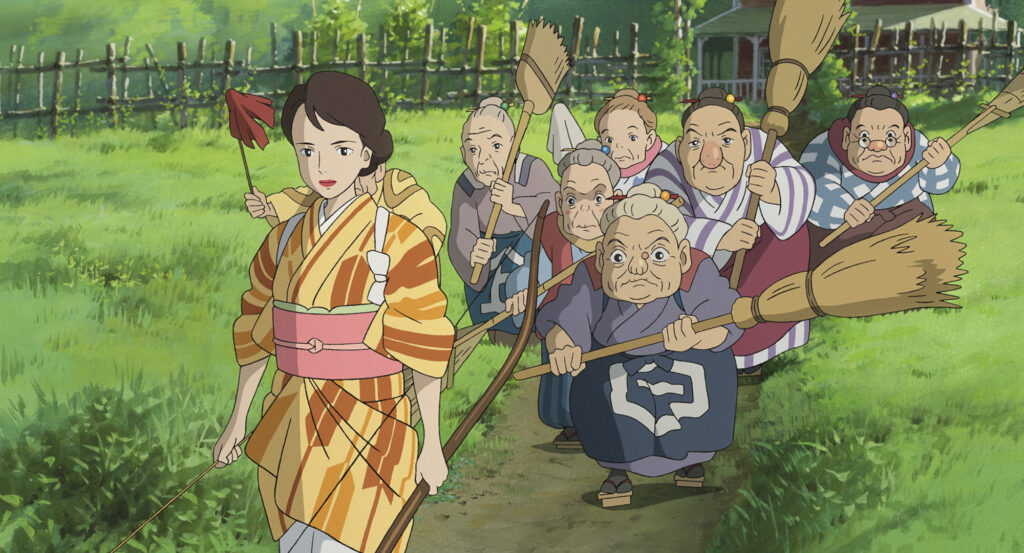By Hugh David. Soma Yukihira’s old man runs a small family restaurant in the less savoury end of town. Aiming to one day surpass his father’s culinary prowess, Soma hones his skills until, out of the blue, his father...
By Hugh David.

Soma Yukihira’s old man runs a small family restaurant in the less savoury end of town. Aiming to one day surpass his father’s culinary prowess, Soma hones his skills until, out of the blue, his father decides to enrol him in a classy culinary school! Can Soma really cut it in a school that prides itself on a 90% fail rate? And can he convince the beautiful, domineering heiress of the school that he belongs there at all?
If ever there was an easy way to define the cooking competition show Food Wars, the phrase ‘food porn’ comes to mind. Whereas success and failure in other titles for teens focuses on combat or sports, albeit it with sufficient emphasis on heavy breathing and physical exertion so as to provide ample fuel for those viewers choosing to sexualise/ship their favourite characters, Food Wars makes text the subtext, and in the most dramatic visual and auditory way possible. Characters have a literal orgasmic reaction to food (or ‘foodgasm’, as defined in the Urban Dictionary), clothes flying off for effect – they are still clothed after the OTT reaction shots, with a few witty exceptions – but in a way that many foodies watching will absolutely recognise, as will cinephiles.

As a visual tradition, associating eating food with sex goes back a very long time indeed, while within social traditions and biological instincts, we’re talking centuries, Biological anthropologist John S. Allen claims in his 2012 book The Omnivorous Mind that “…clearly some people feel something quite special, whatever that might be, when they eat something that really hits the spot…The orbitofrontal cortex, where orgasm and taste perception overlap, is likely the critical region for the foodgasm. It isn’t the same as an orgasm, but it’s nothing to sneeze at either.” Cinema made use of it for years alongside other sexual substitutes such as cigarettes, with a notable eating scene occurring in 1963’s X-rated period comedy Tom Jones, much parodied since. How times have changed; that film is now a rated 12, while Food Wars is a 15! Peter Greenaway’s 1989 arthouse gangster flick The Cook, the Thief, his Wife and her Lover commented on the 1980s through food, sex and death. Juzo Itami’s Tampopo used the setting up of a ramen shop to comment on food and love a few years before. It is, however, a scene in another film that came out the same year as the Greenaway but was by far and away the bigger success, that most foreshadows Food Wars tone: Meg Ryan’s now legendary fake orgasm scene in New York’s Katz’s Deli in the film When Harry Met Sally.

If one is willing to accept this comedic shorthand, then Food Wars is the perfect show for our cooking TV-obsessed times. Where the likes of Iron Chef, Masterchef and many, many more have gamified and mechanised competitive cooking, with judges tasting in silence drawn out until sober verdicts are given, Food Wars restores the passion and sensuality at the heart of good cooking. Yes, the character roster is almost entirely utterly predictable if one is familiar with the subgenre – our lead Yukuhiro Soma, for example, is the typical brightly-coloured spiky-haired rebellious secondary schooler with daddy issues – and the setbacks for the leads are rare, although they do happen. What makes it so entertaining in the end is the honest reactions provoked in these characters by the food they create and ingest. Smells, sounds, tastes, are all emphasised in the animation and audio; a character’s heartbeat and breathing are highlighted to engage us with their sensory perceptions of the food.
High art vs low art, thrifty vs expensive cooking, hearty vs fine dining, these are the binaries that replace most of the usual ones in other sporting manga & anime, although some remain – teamwork vs solo success, learning from failure, overcoming honestly those who would cheat. Characters grow and learn not just through their competitive encounters with each other, but through the amazing culinary creations and combinations invented by them. Not only has this author learnt real techniques and suggestions from the show, but now there are YouTubers who have created many of these from scratch. Good imaginary food now tickling your senses in the real world? That’s quite the achievement for a popular anime series!
Food Wars is released in the UK by Anime Limited.


















